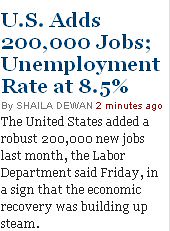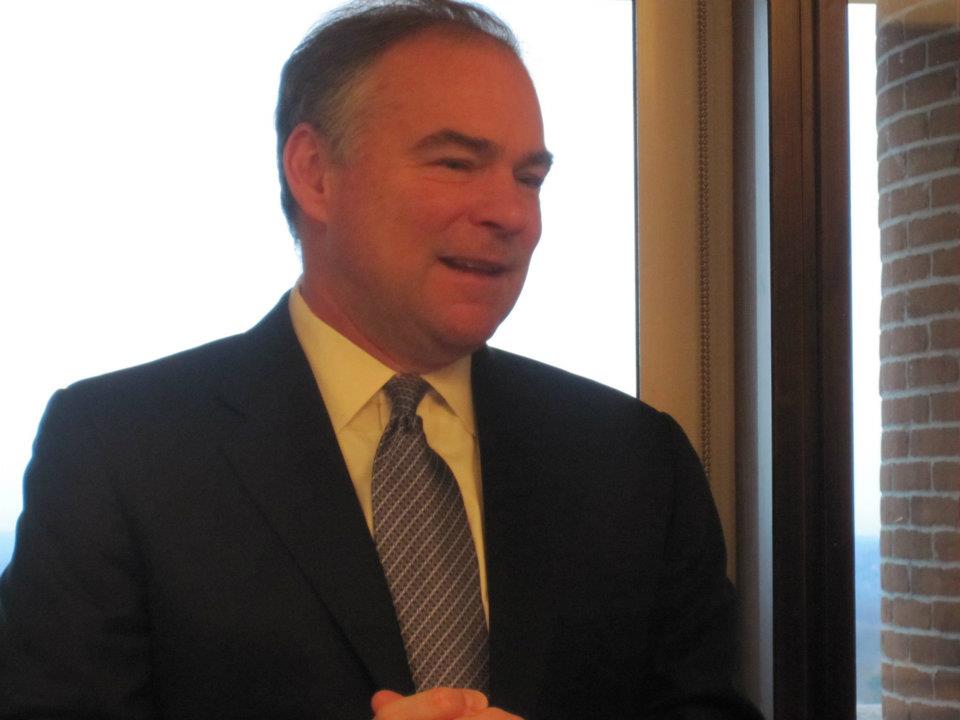Do Iowa results suggest Allen could lose GOP primary?
( – promoted by lowkell)
 by Paul Goldman
by Paul Goldman
The Virginia polls showing George Allen with a 60-point lead in GOP Senator nomination fight are hugely misleading based on the results of the Iowa Caucus. Mr. Allen wasn’t the only incumbent Republican Senator to lose in 2006: so did Mr. Santorum. Both men, once rising stars in the GOP, are trying to get “back in the game” this year. Mr. Santorum decided to try is luck in Iowa, as opposed to running again for his former Pennsylvania seat. Now that the voters have spoken, the results appear to suggest
the VA pundits are missing some real – but not yet tapped – weaknesses in former colleague George Allen’s hopes for a rebirth here in the Old Dominion.
Bottom line: The current strategy by the Allen for Senate campaign to run as the “old” Allen from his gubernatorial days is out of sync with the Iowa results.
But you say: “Come on Paul, how can Dr. Sabato and all the others be wrong about Allen being a sure winner, with a likely margin of 60 points over his nearest GOP competitor this June?”
They aren’t wrong in the sense it is the way the conventional wisdom plays out all things being equal.
But to the extent they believe this is how the campaign should play out, then I say this: They are wrong, the “old” conservative coalition is dead, there is a “new right” conservative coalition that is out of step with Allen’s record: or I suppose it should be that Allen’s record is out of step with it.
The Iowa results make it clear: George Allen has real weaknesses this year which he can not paper over against a credible “new right” challenger running to his right.
I can hear you say it already: “Did you say Paul to George Allen’s right?” While this seems impossible to Democrats and mainstream pundits, conservatives no doubt had a similar reaction when George McGovern and the “new left” decided the party’s old liberal warhorses were too conservative.
Why is Allen not a sure winner just yet?
The reason Mr. Santorum didn’t score far bigger in Iowa is clear from the exit polls: he was weak with pro-growth conservatives and on even shakier ground with the anti-spending wing of the Tea Party posse due to his record in the Congress. By and large, he and George Allen are in the same penalty box here given their pro-Bush voting records.
In a similar vein, both are basically acceptable to the Tea Party’s anti-tax wing and GOP neo-conservatives, the Bush-Cheney hawks.
The trouble for Allen: These were not the groups which propelled Santorum up the charts in Iowa.
The Rickster’s main political fuel came from social conservatives, the “faith and family values” voters. Had Congresswoman Michele Bachmann agreed to drop out as several top Iowa social conservatives pleaded, Santorum would have had a clear margin over Romney although not as big as Mike Huckabee in 2008.
Unfortunately, “values” voters have never seen George Allen as “one of them” unlike Santorum. Part of the reason is George Allen’s stance on abortion which is not doctrinaire enough for them among other social issues. George Allen is not a “religious conservative” anymore than Mitt Romney in the eyes of the “new right.”
Meaning: George has some real vulnerabilities with key voting groups in the new Republican party.
Plus: There is the Ron Paul factor.
A look at the last round of polls showed Santorum gaining the most and Ron Paul dropping the hardest. There seems to be some evidence that a good chunk of the socially conservative Ron Paul crowd went to Santorum at the end, perhaps because he was seen as best able to stop Romney.
The Texas Congressman’s voter is anti-establishment to the core. To be sure, a chunk of Paul’s vote is pure independent and Democrat, so they wouldn’t vote in June. But most have been supporting Republicans over the years and thus will surely be attuned to the Senate primary. They are not going to be attracted to a long-time GOP establishment figure like George Allen.
The anti-Federal Reserve, slash a $trillion out of the Obama budget, mantra of Ron Paul surely is safe for any of Mr. Allen’s opponents to adopt as part of the challenge to the former Senator’s record in office: the rest of Paul’s “live and let live” approach to things from drugs to Iran not so much.
But since this a race for Senate, not President, it is very possible the Paul voters will see it as a domestic issue race, meaning they will not be focused on foreign policy stuff.
Mr. Allen gets it: This is why he seems uncomfortable every time Tim Kaine engaged him at their last debate on spending and debt issues. These issues are deadly for him.
It will be interesting to see how Mr. Santorum handles his Senate record in the debates this weekend.
But one thing is clear from Iowa: Unlike Mr. Santorum, Mr. Allen can’t deflect attention to his record by telling conservatives he is the best ABR – Anybody but Romney – candidate they are going to get.
Bottom line: Given the results in Iowa, Mr. Allen seems to have one hugely valuable real asset in this race, besides his proven skill as a campaigner and fund raiser — he is the only hopeful GOP voters believe can beat Tim Kaine, a perception enhanced by the published polls.
That is a formidable advantage. But at the same time, GOP voters in Virginia are not as anti-Kaine as they are anti-Obama.
To be sure, the “free” media exposure which allowed the shoe-string Santorum campaign to pull a near miracle upset is not available in a VA Senate nomination race. Thus it will take a lot more campaign money for even a credible challenger to make a credible race for the GOP nomination.
Is there such an anti-Allen primary opponent on the horizon?
Not now perhaps not ever. George Allen is the only Republican ever elected Governor and Senator in Virginia history. He is proven campaigner.
But this shouldn’t obscure the truth: The “old” George Allen, the dominating conservative force in Virginia in the past generation, isn’t where his party “is” as they say. Not by a long shot.
He is “too liberal” for them as incredible as that might seem to the people reading this column. So far, the Allen for Senate gurus don’t see a need to create the “new” Allen in hopes of blunting the past. But this is a mistake, for the Iowa results say he is not invulnerable to a challenge from the “new right” despite what his political advisors appear to think.




 The Republican intellectual midgets now vying for a chance to run against President Obama have made railing against the Environmental Protection Agency part of their
The Republican intellectual midgets now vying for a chance to run against President Obama have made railing against the Environmental Protection Agency part of their  The Virginia Sierra Club responds to Gov. McDonnell’s “Energy Policy and Budget Initiatives” (see on the “flip”), released earlier today. I agree with the Sierra Club’s assessment: McDonnell’s approach does not acknowledge environmental reality, weakens an already weak, voluntary “Renewable Portfolio Standard” – exactly the opposite of the direction we need to be going – and is simply inadequate in every way to the energy and environmental challenges we face as a state and as a nation. As with the rest of his governorship, Bob McDonnell’s initiatives always end up with reminding us of that old, comic tag line: where’s the beef? In this case, it’s a nothing burger.
The Virginia Sierra Club responds to Gov. McDonnell’s “Energy Policy and Budget Initiatives” (see on the “flip”), released earlier today. I agree with the Sierra Club’s assessment: McDonnell’s approach does not acknowledge environmental reality, weakens an already weak, voluntary “Renewable Portfolio Standard” – exactly the opposite of the direction we need to be going – and is simply inadequate in every way to the energy and environmental challenges we face as a state and as a nation. As with the rest of his governorship, Bob McDonnell’s initiatives always end up with reminding us of that old, comic tag line: where’s the beef? In this case, it’s a nothing burger.
 Former Governor Tim Kaine, now Candidate Kaine for Senate, spoke this morning at the January breakfast of the
Former Governor Tim Kaine, now Candidate Kaine for Senate, spoke this morning at the January breakfast of the 




![Video: Rep. Morgan Griffith (R-VA09) Says He Hopes “Somebody’s Doing Polling,” Because at This Point “it would be very very difficult for [John Reid] to be able to win the race”](https://bluevirginia.us/wp-content/uploads/2025/04/fredericksgriffith-100x75.jpg)